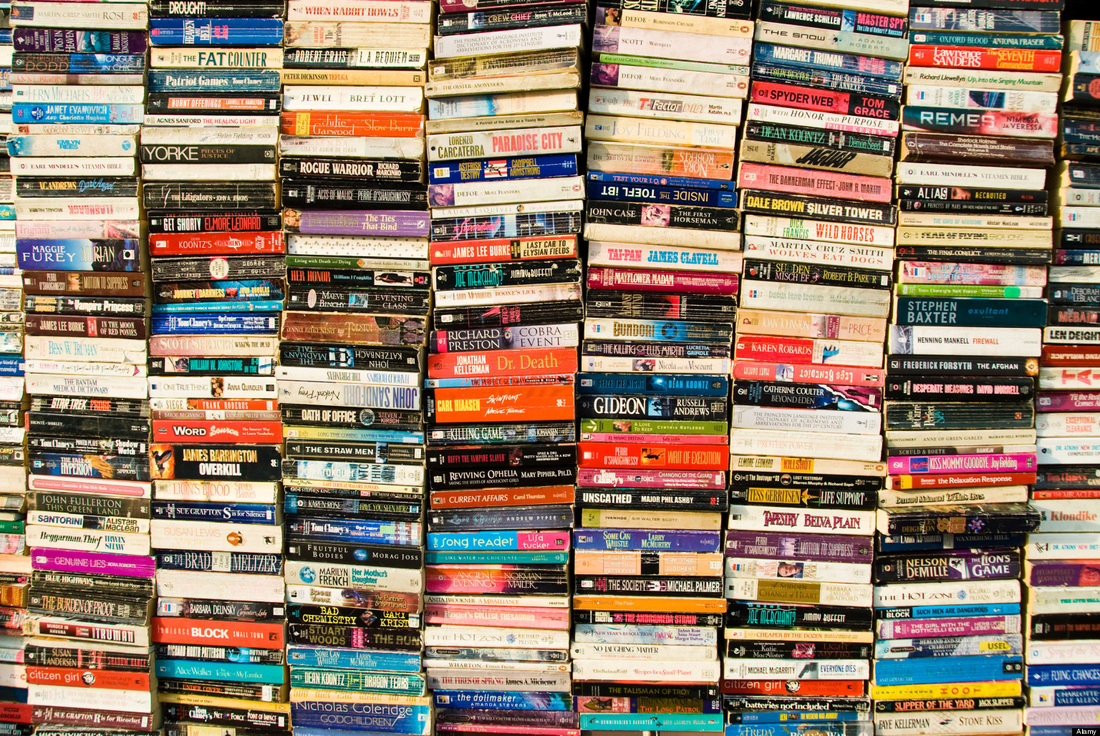|
Author Neil Gaiman gave a lecture at the Reading Agency on 14th October. An edited version of that lecture has been made available on The Guardian's website. It is essential reading: a passionate, poignant, rousing, intelligent plea for books, fiction, literacy, libraries and imagination. Everything is in there. Our uncultured and boorish politicians should be MADE to read it. Below, I have reproduced my favourite bits - although the whole thing is my favourite bit really... Some of these quotes remind me of the child and teenager I was - an avid reader with a wild imagination, desperate to live somewhere else, to experience something else, knowing there was more to life than what I could see around me. Books and the ambition of becoming a writer have pushed me, have made me study hard and stay focused, curious, inquisitive, interested. They saved me in my (numerous) hours of need... Here's to books and fiction... Neil Gaiman on The Guardian Fiction has two uses. Firstly, it's a gateway drug to reading. The drive to know what happens next, to want to turn the page, the need to keep going, even if it's hard, because someone's in trouble and you have to know how it's all going to end … that's a very real drive. And it forces you to learn new words, to think new thoughts, to keep going. To discover that reading per se is pleasurable. Once you learn that, you're on the road to reading everything. And reading is key. There were noises made briefly, a few years ago, about the idea that we were living in a post-literate world, in which the ability to make sense out of written words was somehow redundant, but those days are gone: words are more important than they ever were: we navigate the world with words, and as the world slips onto the web, we need to follow, to communicate and to comprehend what we are reading. When you watch TV or see a film, you are looking at things happening to other people. Prose fiction is something you build up from 26 letters and a handful of punctuation marks, and you, and you alone, using your imagination, create a world and people it and look out through other eyes. You get to feel things, visit places and worlds you would never otherwise know. You learn that everyone else out there is a me, as well. You're being someone else, and when you return to your own world, you're going to be slightly changed. Fiction can show you a different world. It can take you somewhere you've never been. Once you've visited other worlds, like those who ate fairy fruit, you can never be entirely content with the world that you grew up in. Discontent is a good thing: discontented people can modify and improve their worlds, leave them better, leave them different. If you were trapped in an impossible situation, in an unpleasant place, with people who meant you ill, and someone offered you a temporary escape, why wouldn't you take it? And escapist fiction is just that: fiction that opens a door, shows the sunlight outside, gives you a place to go where you are in control, are with people you want to be with (and books are real places, make no mistake about that); and more importantly, during your escape, books can also give you knowledge about the world and your predicament, give you weapons, give you armour: real things you can take back into your prison. Skills and knowledge and tools you can use to escape for real. I do not believe that all books will or should migrate onto screens: as Douglas Adams once pointed out to me, more than 20 years before the Kindle turned up, a physical book is like a shark. Sharks are old: there were sharks in the ocean before the dinosaurs. And the reason there are still sharks around is that sharks are better at being sharks than anything else is. Physical books are tough, hard to destroy, bath-resistant, solar-operated, feel good in your hand: they are good at being books, and there will always be a place for them. Literacy is more important than ever it was, in this world of text and email, a world of written information. We need to read and write, we need global citizens who can read comfortably, comprehend what they are reading, understand nuance, and make themselves understood. According to a recent study by the Organisation for Economic Cooperation and Development, England is the "only country where the oldest age group has higher proficiency in both literacy and numeracy than the youngest group, after other factors, such as gender, socio-economic backgrounds and type of occupations are taken into account". We have an obligation to support libraries. To use libraries, to encourage others to use libraries, to protest the closure of libraries. If you do not value libraries then you do not value information or culture or wisdom. You are silencing the voices of the past and you are damaging the future. Fiction is the lie that tells the truth, after all. Comments are closed.
|
AuthorI think therefore I write. Archives
June 2024
CategoriesAll Art Books Cinema Culture Events Idea Ideas Inspiration Inspirations Literature Music People Places Promo Publishing Reading Reviews Self Publishing Self Publishing Self-publishing Society Theatre Thoughts Working Work In Progress Work In Progress Writing Writings |

 RSS Feed
RSS Feed
